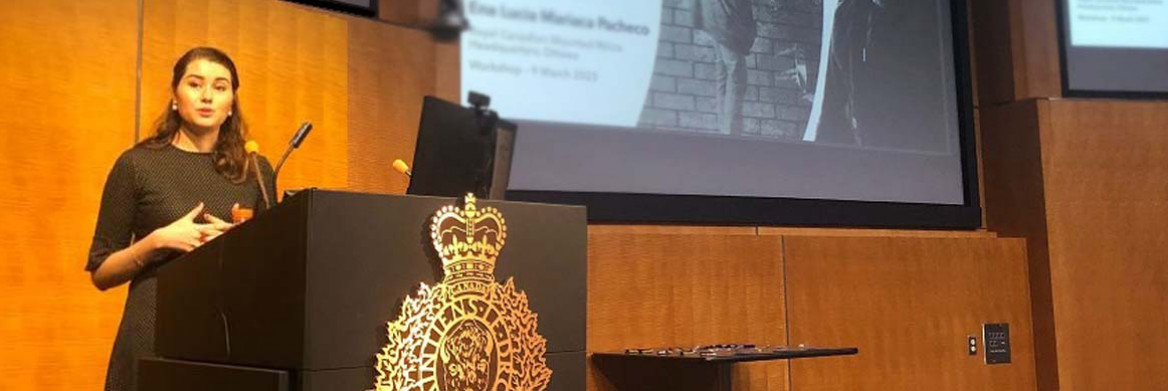While most human trafficking affects females exploited for profit, that isn't the full story. Researcher and advocate Ena Lucia Mariaca has spent the last five years collecting research to unveil the lesser-known world of human trafficking of boys and men.
Women and girls do account for the majority of people trafficked globally. But, according to the U.S. State Department, 29 per cent of the 24.9 million people subjected to modern-day slavery globally in 2019 were boys and men.
Mariaca cautions that police officers need greater awareness around this preconception. "Speaking with survivors, I've learned how important it is for officers to check their bias. Specifically, gender bias," says Mariaca.
"If people have a gender bias they often think, women are the victims and men are the perpetrators. This can hinder and often ends an investigation because they think, 'it's not possible, so why look into it'?"
Lifting bias through training
Filling gaps and raising awareness is nothing new for Mariaca. Her research has landed her opportunities to share her findings with allied organizations around the world. In 2023, Corporal Lorry Thick, who supports the RCMP's National Human Trafficking Policy Section, invited Mariaca to lead a workshop in Ottawa on the topic. The training session included participants from the RCMP, the Department of National Defence, Ottawa Police Services and other organizations.
The workshop aimed to provide extensive training and awareness on the human trafficking of boys and men, and drew from the experiences of a group of male survivors. It also served as a way for officers to build a network and leverage resources across organizations.
The training covered five key recommendations to help participants detect and better address trafficking:
- check gender bias
- use a trauma-informed approach
- leverage more female police officers that are trauma-informed as some male survivors have expressed challenges connecting with males based on past trauma
- show more empathy for minority groups, who often have unique barriers connecting with police
- create a safe space by actively listening with compassion and kindness
"The area of sexual exploitation of men and boys has generally been a blind spot for police. This was an area that we wanted to highlight, not only for RCMP officers, but also our partners," says Superintendent Kim Taplin, Director General of National Crime Prevention and Indigenous Policing Services.
National Defence Polygraph Examiner Kristine Smith was one of the participants. "The workshop helped me understand that my definition of human trafficking was way too restrictive," says Smith.
Collaborating to combat human trafficking
Having representation from a variety of organizations helped to bring understanding to the roles that each can play in addressing the issue.
"Sharing expertise is key to making federal efforts more efficient and effective," says Smith. "The reality is that there's a lot of work to do, and not enough resources. If we can support each other instead of reinventing the wheel, we can share knowledge to optimize the fight."
Building knowledge across Canada
As the RCMP continues to build awareness and develop its capacity to address the crisis, Mariaca says she looks forward to further training opportunities. "Many survivors mention the need for law enforcement to use a trauma-informed approach," she says. Trauma-informed practice recognizes the impact that trauma has on individuals, which then informs how officers engage with survivors.
"It would be great to see this type of training introduced during the cadet training at Depot," adds Mariaca. "Ten years ago, we weren't as aware of trafficking but, things have changed. Early training is a good opportunity to start implementing this approach."
Taplin says that workshops like this help to equip officers to identify and address human trafficking of boys and men. "We're hoping to expand on this training and explore how we can help bring this knowledge into regions and detachments across Canada," says Taplin.
